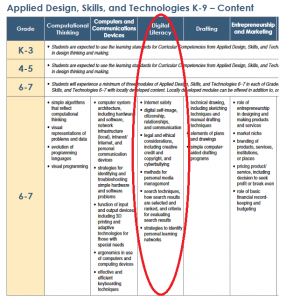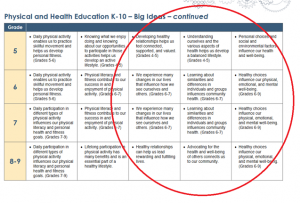First thing, please ignore the blog post from earlier today. I was practicing and that post was not supposed to be sent. This is what I was trying to say…..
This news story came to my mind during the discussion in the last class. Digital etiquette, digital law, and digital rights and responsibilities are components of digital literacy. The referenced news article highlights what can happen when the components are not followed. The defendant said it wasn’t her intention to cause harm (I think is a weak defense). Nonetheless, she did cause much harm to the victim and herself. I only had to google her name to get the news story, as will anyone else who ever thinks about hiring her for a job. The male student in question had to leave the Yukon because of her Facebook post. She should have known better.
Speaking of knowing better, my husband and I gave our almost 13-year-old daughter her first Iphone last week. She had her sign a contract; thank you for the idea Alec! We made one similar to Greg’s mom. Our daughter willingly, almost happily, signed the contract, in which it was clearly stated, “If it falls into the toilet, smashes on the ground, or vanishes into thin air, you are responsible for the replacement costs or repairs.” Not 48 hours later, this clause was broken. Luckily for her, her phone was not damaged and no repairs were needed.
This brings me to my final point, that students need to be explicitly taught, re-taught and supported to learn about digital citizenship. We can not assume that they will know what to do. Students have to be taught how to read, how to write a logical sentence, and how to complete a math problem. There seems to be a disconnect sometimes that they also need to be taught how to be a responsible person. It does not “just” happen. In addition, the BC curriculum is used in the Yukon. I have a included a couple of screenshots below of some learning objectives from the curriculum. Yukon teachers HAVE to teach digital citizenship; it is in the Applied Design, Skills and Technologies curriculum and in the Physical and Health curriculum. This is not a “one and done” activity either, it is going to take some time. As it also stated in my daughter’s cell phone contract, “You will mess up. We will take away your phone. We will sit down and talk about it. We will start over again. We are always learning and we are on your team. We are in this together.” (thanks to Greg’s mom for sharing).



Laura,
I appreciate you including your own personal experiences in your post this week. It really puts things into another perspective, especially for me who does not yet have children. You mention how you went over some rules and regulations within the contract. I think some parents are forgetting the importance they have on their child’s digital citizenship. Of course as educators we have an influence as well, but at the end of the day, I think how a child is “behaving” over the internet reflects what they were told or taught at home. I think the parents need to implement these rules and explain the good and the bad that can come from being on the internet and using social media. I believe it helps us teachers a lot more when the children are already aware of this from their home life!
Kennedy Loreth
Dear Laura,
Thanks for sharing your personal experience. I totally agree with you that Educators must teach digital citizenship to students. I think parents must teach it to their kids as well. Since they know what good is and bad is in the digital world, they always try to choose the best thing. In this case we will not hear bad news and stories particularly about teenagers anymore!
Hello Laura,
I love the wording of the cell phone contract that you gave your daughter. I am taking notes to share with my own daughter 12 years down the road! Well done.
Hi Amanda, do you want a copy of the contract we gave her?